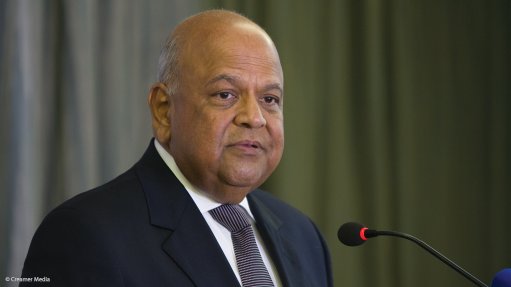
Finance Minister Pravin Gordhan attended the G20 Finance Ministers meeting in Germany last week
Photo by: Duane Daws
Clear support emerged last week from Group of 20 (G20) members’ Finance Ministers and central bank governors for the broadening of international economic and financial cooperation with African countries to “foster sustainable and inclusive growth” in line with the African Union’s Agenda 2063.
At the G20 meeting, held last week in Germany, the convened governors and Ministers, which included South African Finance Minister Pravin Gordhan and Reserve Bank governor Lesetja Kganyago, “substantially backed” the G20 Compact with Africa for Resilience and Growth (CwA), a newly launched framework for regional economic and financial stability in Africa.
African Ministers from Côte d’Ivoire, Morocco, Rwanda, Senegal and Tunisia were invited to the G20, where they each delivered presentations on their country's macroeconomic environment, reform initiatives and investment projects, the National Treasury said in a statement on Monday.
In addition to the G20 GwA, the G20 Ministers and governors had gathered to discuss the global economic outlook; the framework for strong, sustainable and balanced growth; international financial architecture; financial sector development and regulation; international tax; and other global governance topics.
“Ministers and governors reaffirmed their previous exchange rate commitments, including that they will refrain from competitive devaluation. Consensus was reached on addressing and reducing excessive global imbalances while promoting greater inclusiveness and reducing inequality in pursuit of economic growth,” Treasury highlighted.
Support had also been obtained for the strengthening of the international financial architecture through further work on a global financial safety net with a “strong, quota-based and adequately resourced International Monetary Fund (IMF) at its centre”; operational guidelines for sustainable financing reflecting the responsibilities of borrowers and lenders; and principles for effective coordination between the IMF and multilateral development banks in the case of countries that are seeking financing for macroeconomic vulnerabilities.
Further, the G20 members endorsed the Financial Stability Board (FSB) policy recommendations to address financial vulnerabilities from asset management challenges.
“There was agreement to finalise the Basel III framework without further increasing the capital requirements across the banking sector,” Treasury commented, adding that the G20 members requested a progress report and the 2017 work plan under the FSB-coordinated action plan to assess and address the decline in correspondent banking.
G20 Finance Ministers and central bank governors will next meet at the Spring Meetings of the World Bank and IMF in Washington DC, in April.